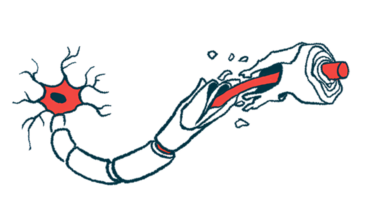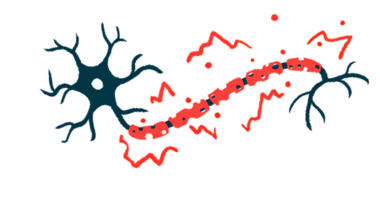$24M in financing to advance treatments to protect myelin sheath
Myrobalan aiming to move potential oral therapies into clinical trials

Myrobalan Therapeutics has secured $24 million in series A financing to support the development of oral medications for multiple sclerosis (MS) and other diseases of the central nervous system (CNS), which comprises the brain and spinal cord.
The company’s pipeline currently includes three candidate therapies targeting demyelination (loss of the myelin sheath that protects nerve fibers) and neuroinflammation, two disease mechanisms shared by MS and other conditions affecting the CNS, such as Alzheimer’s and amyotrophic lateral sclerosis.
“Our deep understanding of remyelination and neuroinflammation has broad application in high-unmet need CNS diseases,” Jing Wang, PhD, Myrobalan’s CEO and co-founder, said in a company press release.
Protecting the myelin sheath by preventing demyelination, inflammation
Money raised through the funding round will help in advancing the neurorestorative candidates through to clinical testing. Neurorestoration refers to the regrowth or repair of neurons (nerve cells) or nervous tissues.
“Propelled by our foundational science, strategic chemistry partnership, compelling preclinical data, and strong investors, Myrobalan is in a unique position to advance its neurorestorative candidates into the clinic,” Wang said.
MS occurs when the immune system mistakenly attacks myelin, a protective sheath that wraps around nerve fibers. This immune attack results in inflammation, which further damages the myelin sheath, as well as the neurons themselves and the cells that produce myelin.
Developing medications for MS and other CNS diseases is challenging because their exact causes and underlying mechanisms are not fully understood, hampering work to identify specific molecular targets for a therapy.
Additionally, it is challenging to get medications into the brain and spinal cord where they are needed, mostly due to the blood-brain barrier. This protective membrane regulates the passage of substances from the bloodstream into the brain and spinal cord. While crucial for maintaining a stable environment within the CNS, it complicates drug delivery.
Oral therapies targeting oligodendrocytes, microglia, and T-cells
Myrobalan’s candidates are brain-penetrant, orally available small molecules that target three proteins — GPR17, CSF1R, and TYK2 — involved in demyelination and neuroinflammation, Myrobalan reports on a company webpage.
GPR17 works like a natural brake that slows the development of oligodendrocytes, the cells that produce myelin. A GPR17 antagonist is expected to release this brake, promoting the repair of the myelin sheath.
Microglia, the brain’s resident immune cells, rely on signals from CSF1R for their normal functioning. When microglia go awry, they cause neuroinflammation and prevent myelin from being repaired. A CSF1R inhibitor is expected to reduce the number of malfunctioning microglia, potentially allowing new and healthy microglia to replace them.
TYK2 causes T-cells, a type of immune cell, to develop into specific profiles that can cause neuroinflammation. A TYK2 inhibitor is expected to block harmful T-cell activity, protecting neuronal health.
“Myrobalan’s approach to targeting GPR17, CSF1R, TYK2 and other key drivers of CNS disease is both novel and timely,” said Zhigang He, PhD, a company co-founder and a professor at Harvard Medical School near Boston. “Our foundational research established the important roles these targets can play across multiple CNS diseases.”
Co-win Ventures led the financing round, joined by investors that included Guan Zi Equity Investment (Li Shui) Partnership, 3E Bioventures Capital, and AB Magnitude Ventures Group.
“We are proud to support Myrobalan in their work to develop first-in-class neurorestorative therapies based on strong target biology and innovative drug design,” said Xin Huang, managing partner of Co-win Ventures.







